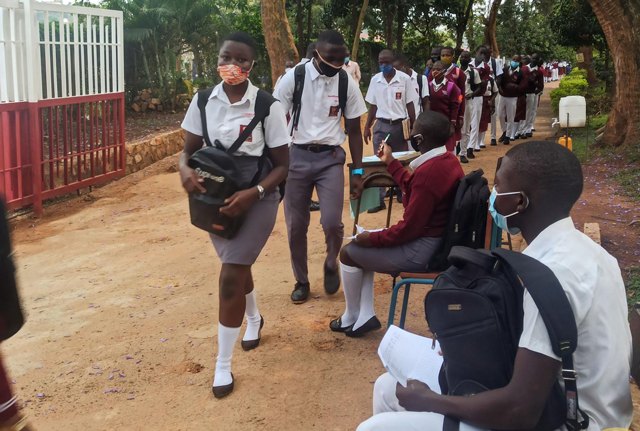
Kampala, Uganda | THE INDEPENDENT | Seventy-seven percent of the teachers in private schools didn’t return to the schools where they were teaching prior 2020, when the COVID-19 pandemic hit the country, a new survey by the Economic Policy Research Center (EPRC) released on Monday has shown.
Rehema Kahunde, a researcher at the Makerere University-based research centre says that they did a survey in 22 districts, a month after the school reopening. During the study, they asked private school headteachers about the attrition rate of both teachers and students in addition to how prepared they were to resume following the world’s longest school closure.
They also asked about their readiness to implement the standard operating procedures. She says school heads reported having lost teachers to petty businesses such as vending and boda boda, something researchers warn could have long term effects on the teaching workforce.
In every district, researchers sampled one urban and peri-urban private school where they found only four in every ten schools to have what the Ministries of Health and Education had asked them to have in order to safely reopen.
For instance, while teachers were required to be fully vaccinated, two in every ten schools had staff who had either never been vaccinated at all or had only received a single dose of the two-dose jab. When it comes to operations of the schools, Kahunde says eight in every ten schools were in dire need of credit to run but couldn’t access it.
Commenting on these findings and the general impact that COVID-19 has had on the social sector, Dr. Ibrahim Kasirye, a senior researcher at EPRC said based on their research, he predicts the rate of child labour to go even higher because they can no longer afford school. He said for women, it’s even worse that they will have to remain in the informal sector longer, which attracts low pay.
Even for the continuing students, Kasirye is worried that the long school closures will create a lag in filling some positions in the workforce, especially with the automatic promotions that were done without specific criteria of how the education system transits children from one grade to another.
On his part however, Dr. Francis Mwesigye, an economist based at the Uganda Development Bank said the priority intervention for struggling businesses including education is financing.
The economist pointed out that stimulus packages given out amidst the pandemic only benefited bigger formal businesses and yet informal SMEs needed assistance with rapid assessments showing many of such businesses used up their capital in the first weeks of the lockdown.
*****
URN
 The Independent Uganda: You get the Truth we Pay the Price
The Independent Uganda: You get the Truth we Pay the Price


